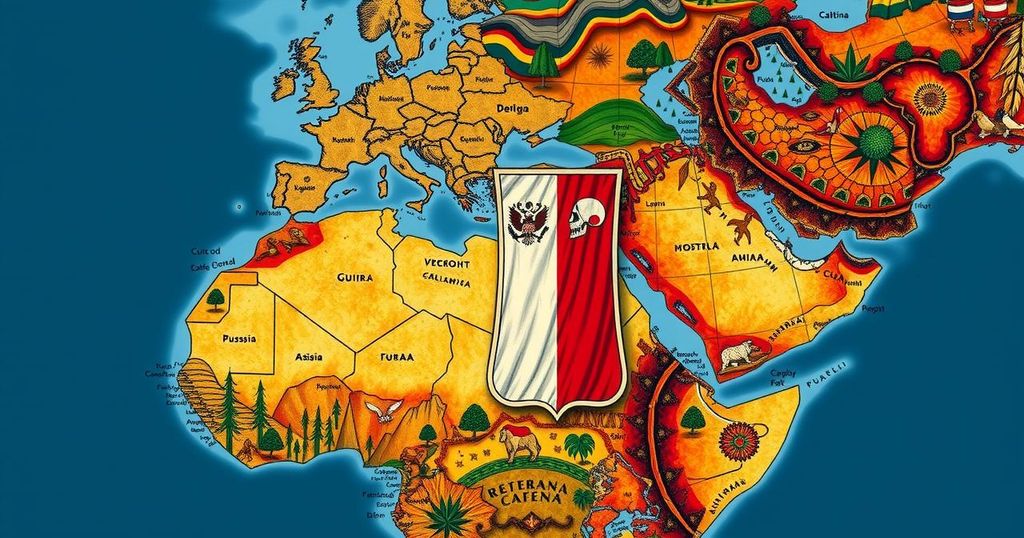Reports indicate that Russia has deployed 100 to 200 military instructors to Equatorial Guinea to bolster the security of President Obiang’s regime. This action reflects a growing Russian presence in West Africa, marking a shift from Western influence to Russian military and economic interests in the region. The instructors aim to safeguard the president’s son, Teodoro Nguema Obiang Mangue, as concerns about regime stability rise amid declining U.S. involvement in the area.
In recent weeks, Russia has reportedly sent between 100 to 200 military instructors to Equatorial Guinea to enhance the security of its presidency, expanding its influence in West Africa. This move follows a pattern of increasing Russian involvement across the region, where Moscow has previously dispatched mercenaries to bolster military regimes and counter insurgency movements. The deployment aims to secure the legacy of President Teodoro Obiang Nguema Mbasogo, who has been in power since 1979, particularly safeguarding his son, Teodoro Nguema Obiang Mangue, the vice-president and designated heir who has faced various legal challenges abroad. The instructors are primarily located in the capital, Malabo, and Bata, the country’s mainland, where elite guard units are being trained. The Russian initiative signifies a decline in Western influence, as companies like Exxon Mobil and Marathon have scaled down operations in the country, which produces around 80,000 barrels of oil per day, significantly lower than its peak in the early 2000s. Recruitment for these positions has occurred through Russian pro-military Telegram channels, offering lucrative contracts likely to attract private contractors eager for cash or cryptocurrency payments. This strategic alliance may also facilitate Russian engagement in Equatorial Guinea’s oil and gas sector. Although this development follows a defeat for Russia in Mali, it underscores President Obiang’s gratitude towards Moscow, as he actively seeks to reinforce his regime against potential threats. Overall, Russia’s operations in Africa, mainly through the Wagner Group and now the Africa Corps, showcase an opportunistic approach that seeks both economic gain and geopolitical advantage against Western powers.
The deployment of Russian military instructors to Equatorial Guinea signifies a broader strategy of Russia to expand its geopolitical influence in West and Central Africa, especially in the context of reducing Western dominance in the region. The increasing presence of Russian mercenaries, especially following the actions of the Wagner Group, highlights a shift in the security landscape of Africa, where Moscow aims to support regimes in exchange for economic benefits. Equatorial Guinea, under the long-standing rule of President Teodoro Obiang Nguema Mbasogo, has been experiencing a decline in U.S. energy investments, making it a potential target for Russian expansion in the energy sector.
The deployment of Russian military instructors to Equatorial Guinea represents a significant shift in the region’s power dynamics, highlighting the waning influence of Western nations amidst opportunistic Russian expansion. By providing military training and security to the ruling regime, Russia not only aims to protect its economic interests in Equatorial Guinea’s oil and gas sector but also seeks to establish a foothold in West Africa. This strategic maneuver indicates a broader pattern of Russian engagement in Africa, as it continues to promote stable, compliant governments against internal and external threats.
Original Source: www.usnews.com






